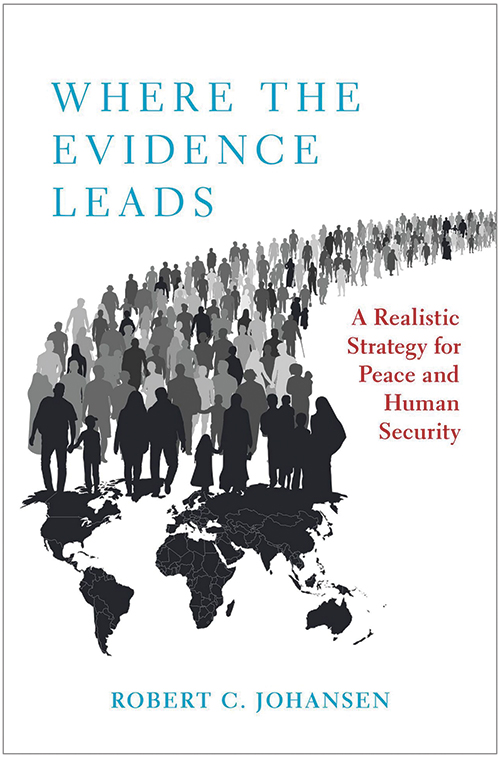
In Brief: Where the Evidence Leads: A Realistic Strategy for Peace and Human Security
Reviewed by Kathleen Jenkins and Sharlee DiMenichi
June 1, 2023
By Robert C. Johansen. Oxford University Press, 2021. 448 pages. $99/hardcover; $34.95/paperback; $23.99/eBook.
This volume in the Studies in Strategic Peacebuilding series from Oxford University Press argues that securing human rights and promoting international law can prevent war. The author draws on experience as a professor of international relations and peace studies to outline how changes in the United States’ role on the world stage can influence prospects for global cooperation.
Johansen cites authors who maintain that the United States’ military–industrial complex with its astronomical spending is part of the reason the United Nations has not succeeded in eradicating war. Instead of increasing funding for nuclear and conventional weapons, the United States could choose to financially and diplomatically support a system of international law enforcement, the author argues.
The detailed book distinguishes between national security and human security, the latter of which consists of overcoming obstacles to individuals’ “survival, livelihood, and dignity.” One of the most compelling sections explores the correlation between women’s equality and peacebuilding. For instance, the author cites a study of resolutions to intrastate violence between 1980 and 2003 that found that nations with no women in the legislature had a high probability of resuming lethal conflict. However, “when women constitute as much as 35 percent of the legislature, the risk of relapsing into violence ‘is near zero.’” The author mentions research that indicates female empowerment more reliably predicts peace than other factors including “democracy, religion, or GDP.”
The penultimate chapter points out threats to U.S. democracy—such as voter suppression, lack of public debate on foreign policy, and gerrymandering—and discusses their impact on the potential for transnational peace movements. The last chapter discusses the human security gains that transnational social movements have aided: for instance, the abolition of apartheid in South Africa in 1994 and the International Criminal Tribunal for the former Yugoslavia in 1993.
Readers seeking a conceptual framework for international peacebuilding that draws extensively on research and features clear explanations will find this book useful.
Kathleen Jenkins is the book review editor for Friends Journal. Sharlee DiMenichi is a staff writer for Friends Journal.



Comments on Friendsjournal.org may be used in the Forum of the print magazine and may be edited for length and clarity.